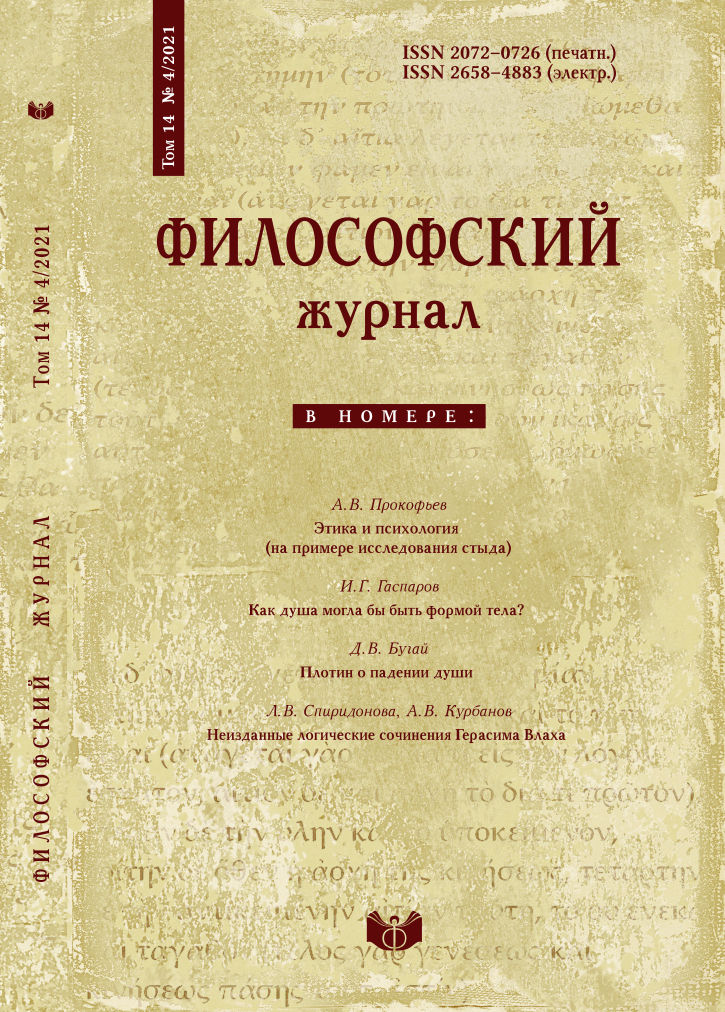The archpriest Avvakum’s questions and answers in relation to the philosophical and theological definitions in his “Book of Rebuke”
DOI:
https://doi.org/10.21146/2072-0726-2021-14-4-157-173Keywords:
Archpriest Avvakum, “Book of Rebukes”, Old Believers, John of Damascus, Capita Philosophica, categories, trinitarian theology, metaphysics, patristics, Old Russian philosophyAbstract
The author proposes explores the thesaurus of philosophical and dogmatic definitions in the second part of Archpriest Avvakum’s “Book of Rebukes”. The thesaurus has been preserved in a single fairly complete manuscript published by P.S. Smirnov, which had not been studied by researchers earlier. The growing value of the dogmatical, logical and philosophical issues in Moscow Russia coupled with Avvakum's personal polemical needs during the ‘Pustozersk controversies’ with his spiritual son, diakon Feodor, starets Ephrem Potemkin and Ignatiy Solovetsky inspired the creation of thesaurus. It has a question-answer structure consisting of such parts as Trinity, God’s entity, collected nature, nature, subsistence, being subsistent, entity, hypostasis, God. The thesausrus is divided into two parts; the first part contains definitions in a general sense, the second provides those in relation to the Deity and the Trinity. Next, there is an extensive part where Avvakum explains the Trinity with new clarifications on the difference between individual and universal beings. The author explores each of these definitions and their respective interpretations and demonstrates that the text of the “Book” contains literal borrowings from “Capita Philosophica” of John of Damascus and “Small Catechism Book” of Pietr Mogila. Some of the terminological features of Avvakum’s language suggest the influence of other logical works. It is further proposed that certain Avvakum’s articles were corrupted by the scribe. The article also contains a diagram of the relations that exist among Avvakum’s terms. The diagram helps the reader understanding his work better. The conclusion is that this thesaurus is very important for a correct reconstruction of Avvakums’ trinitarian and metaphysical views.






